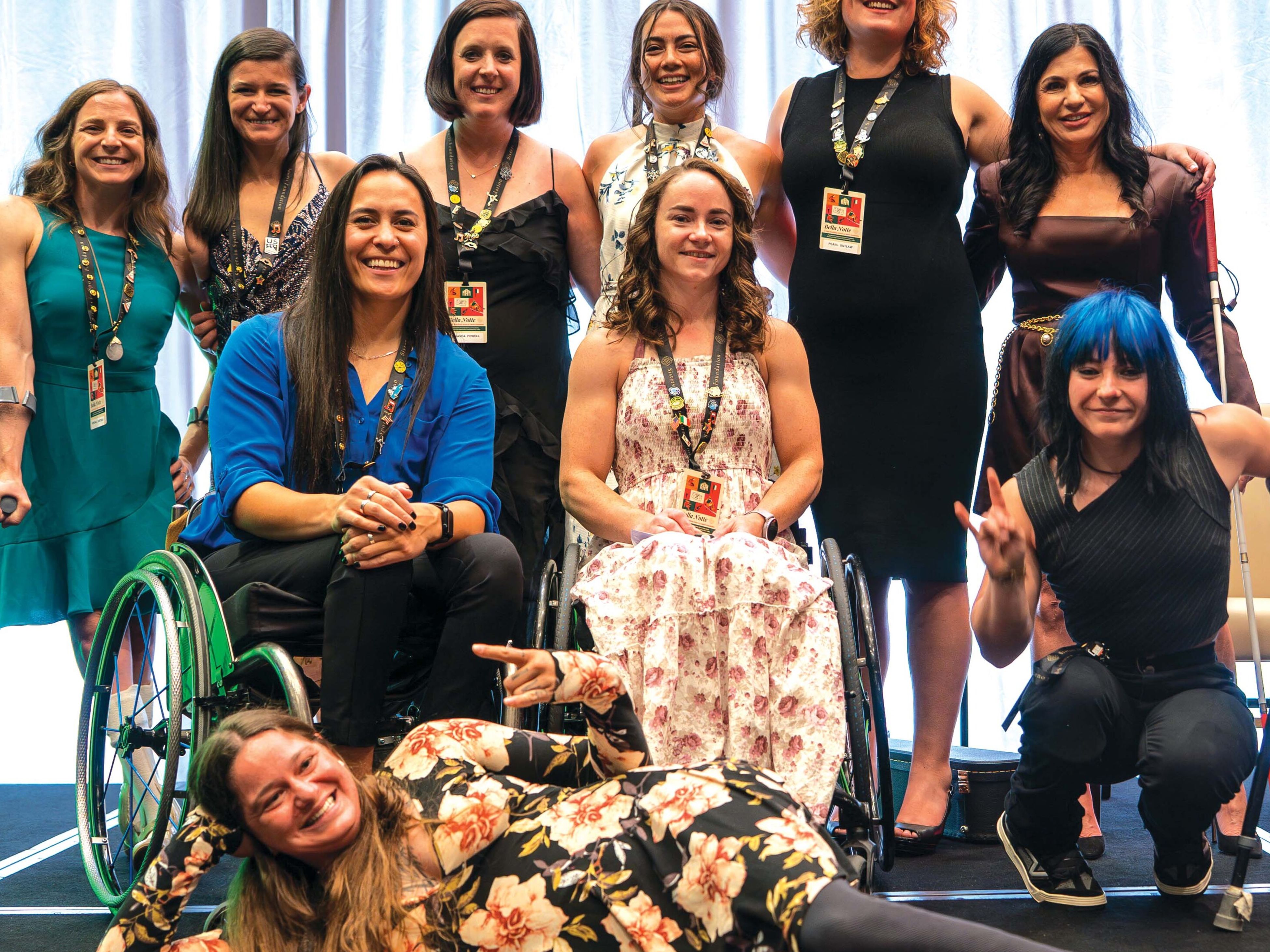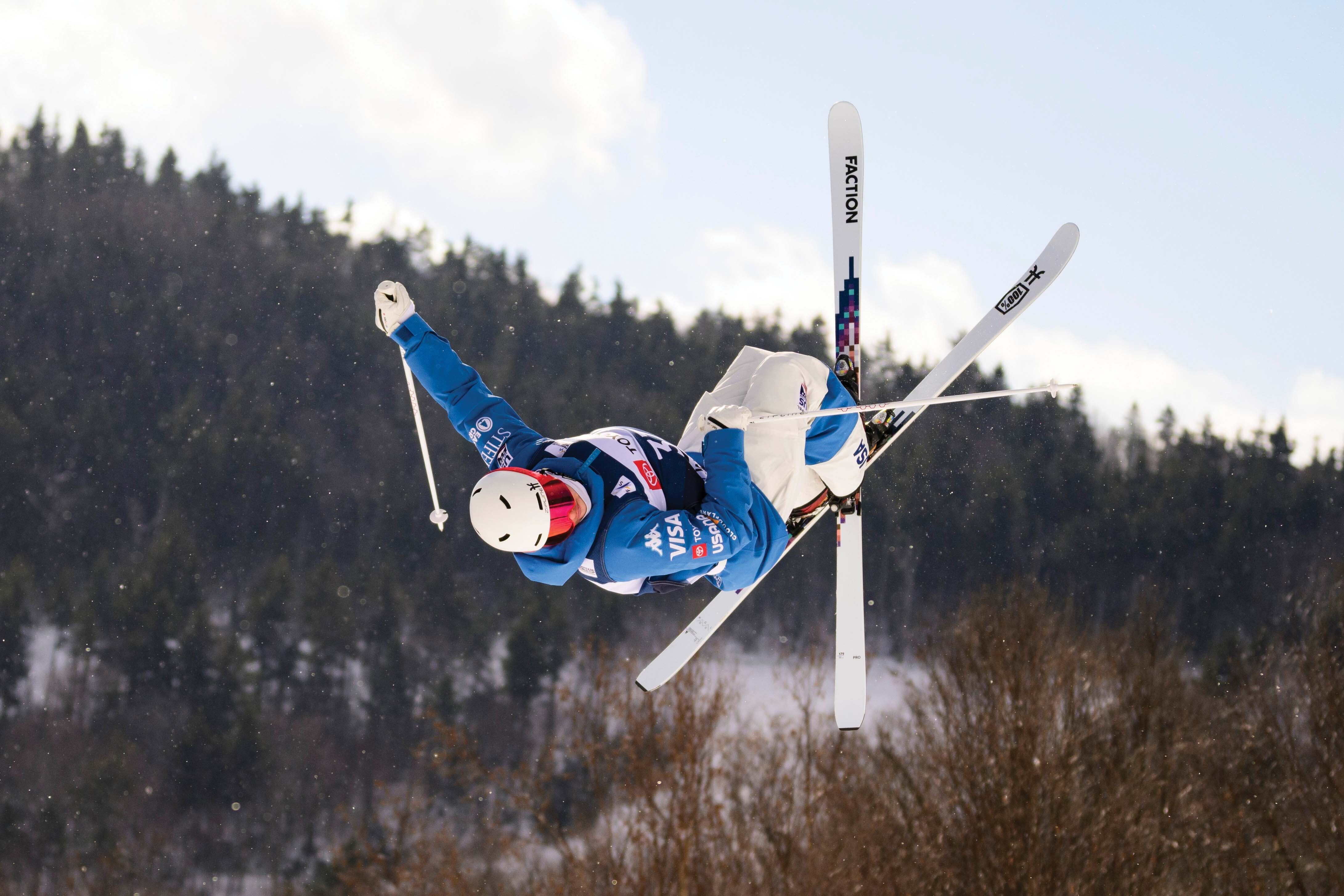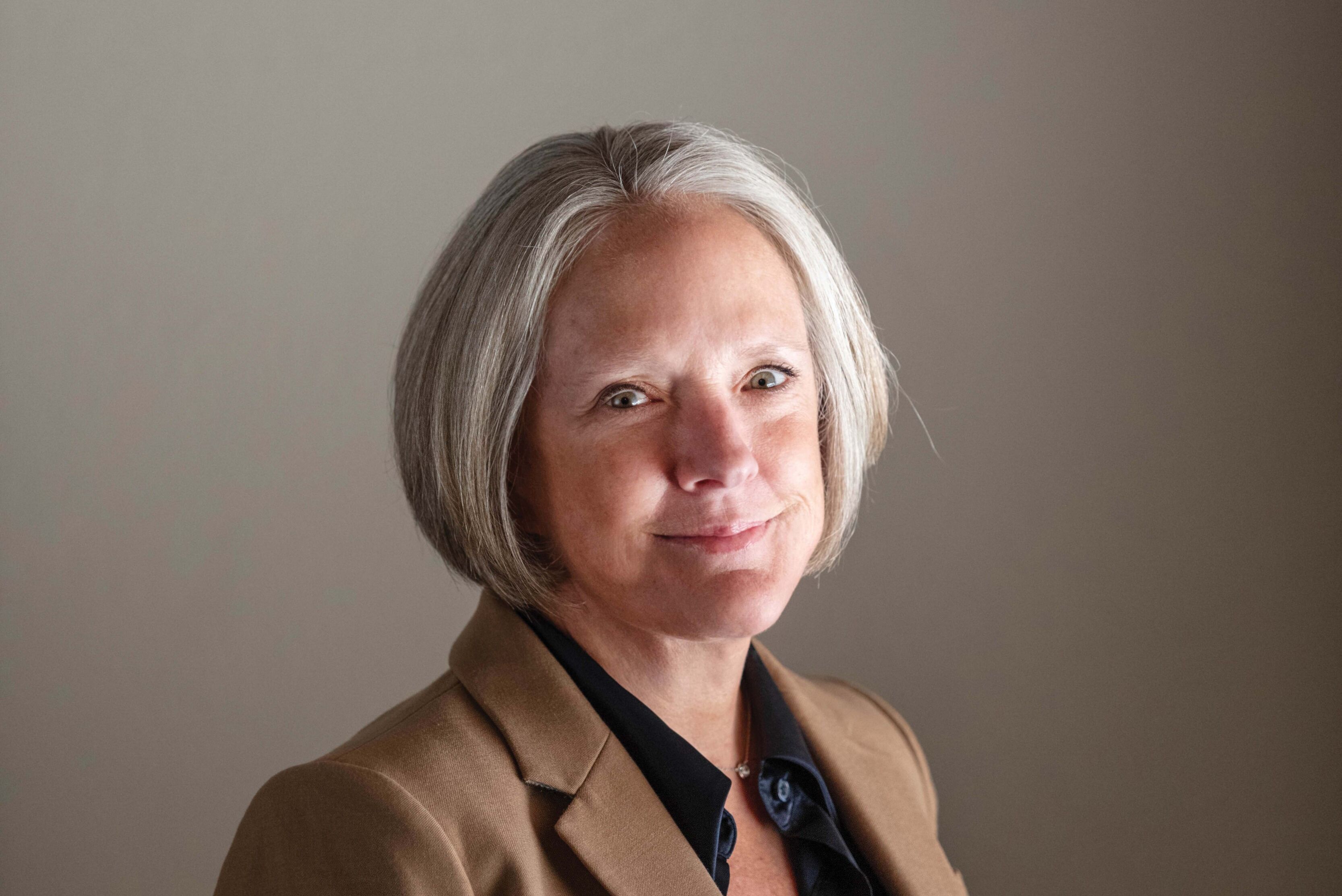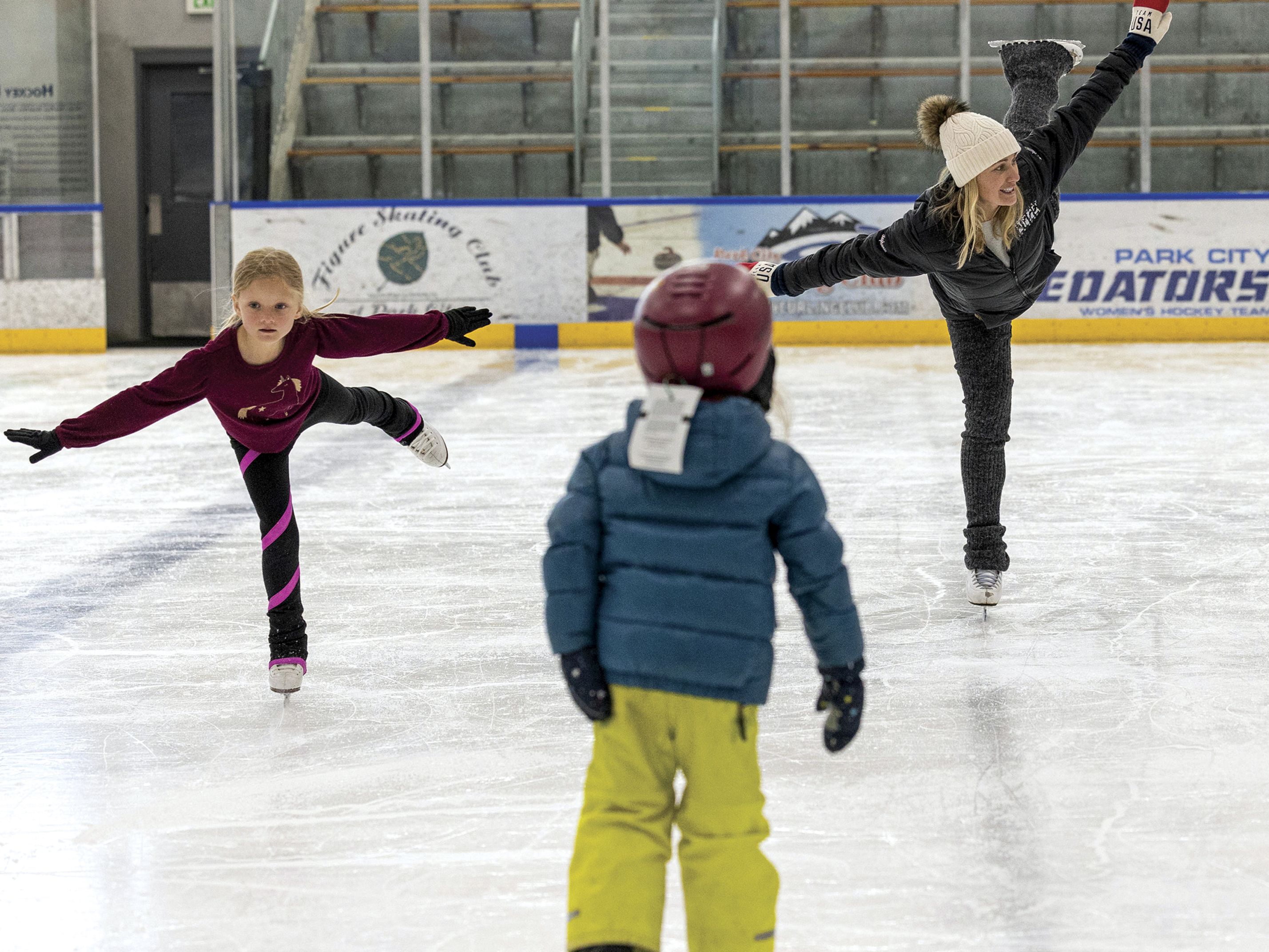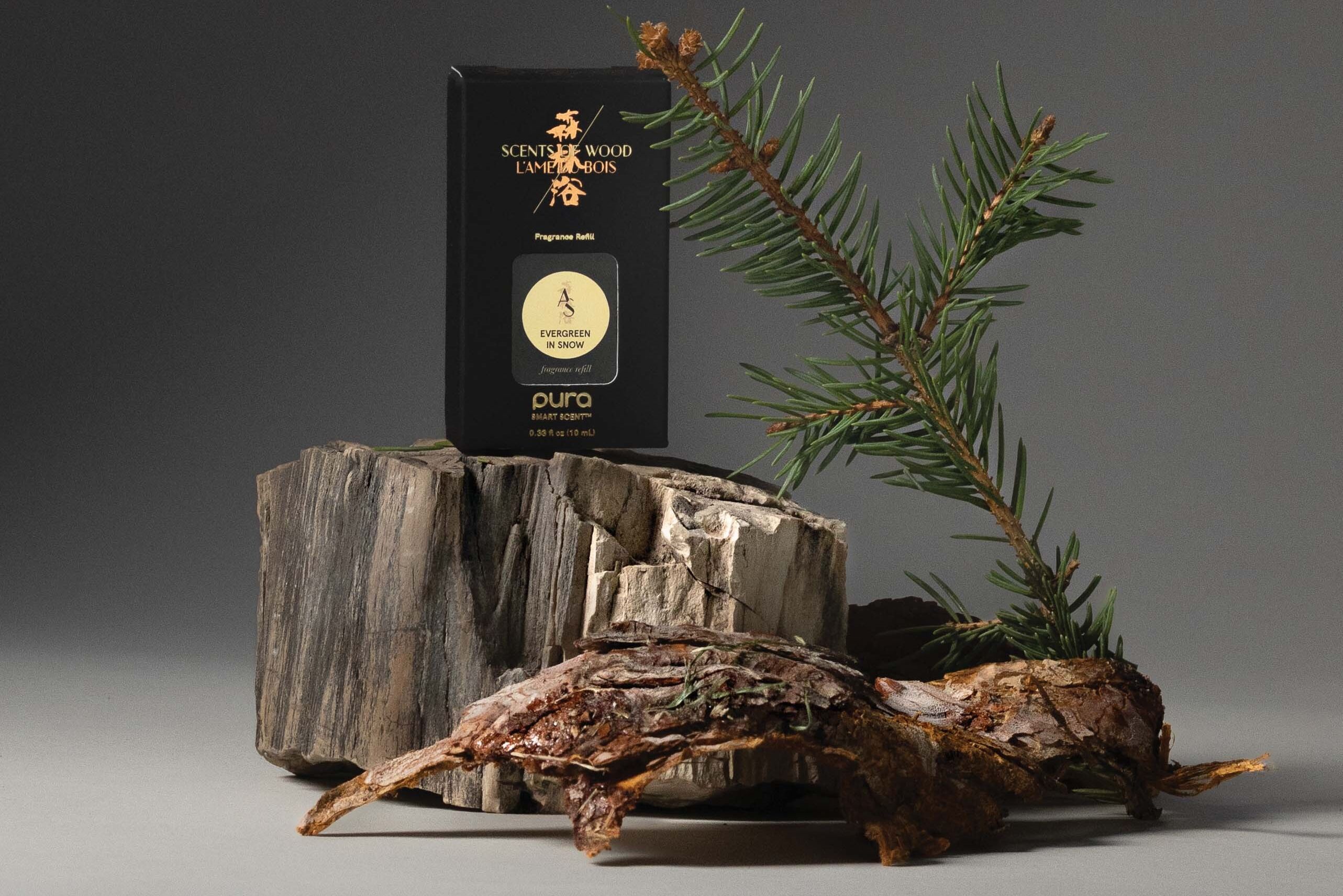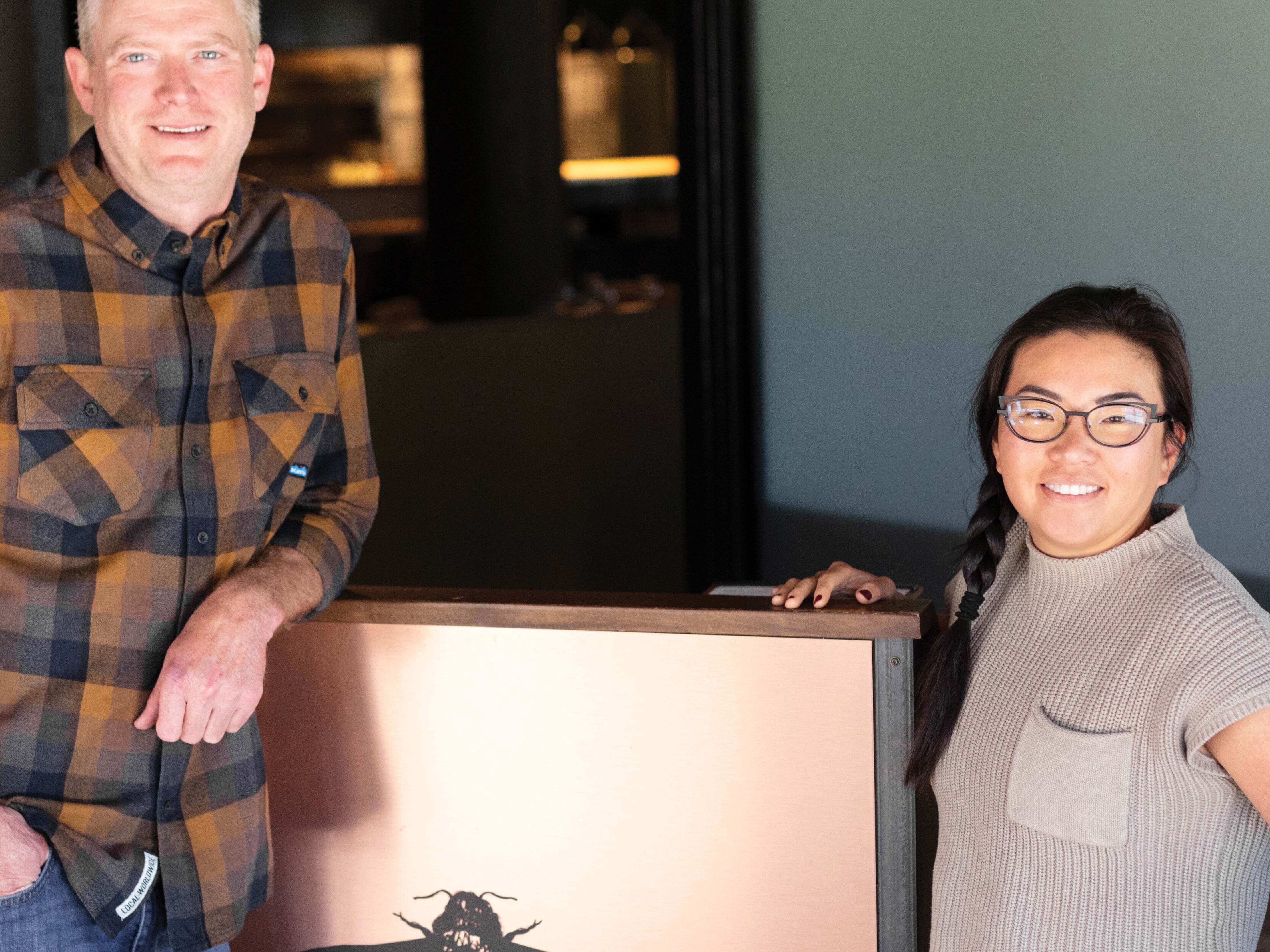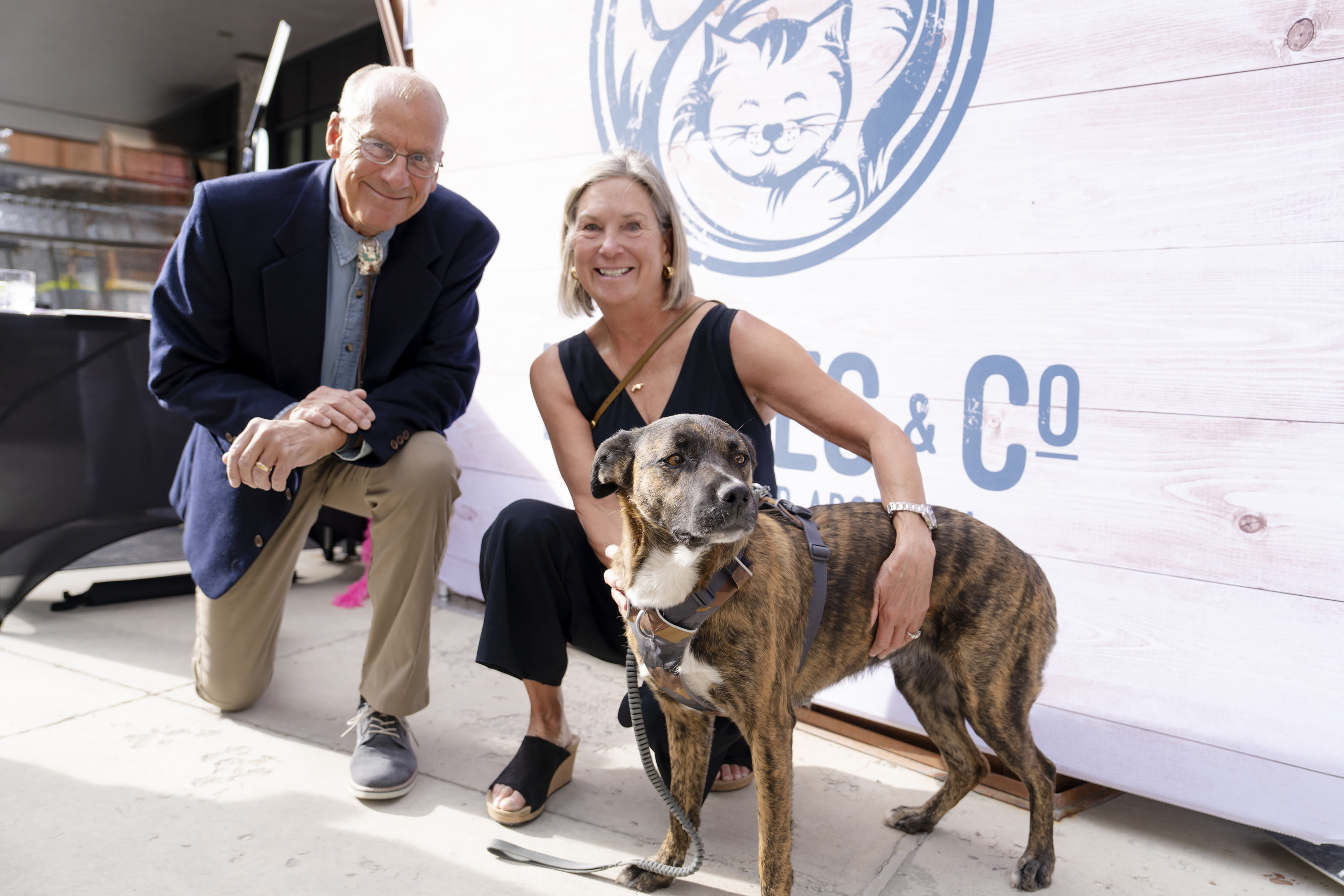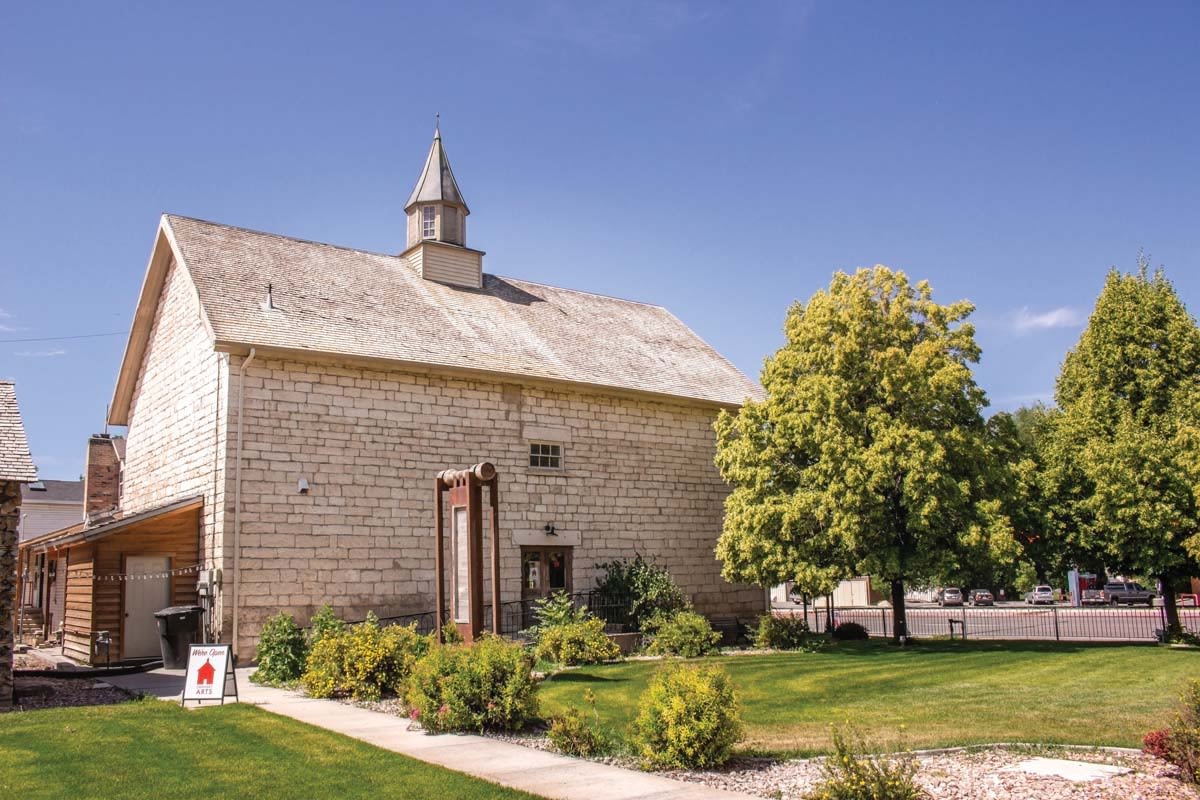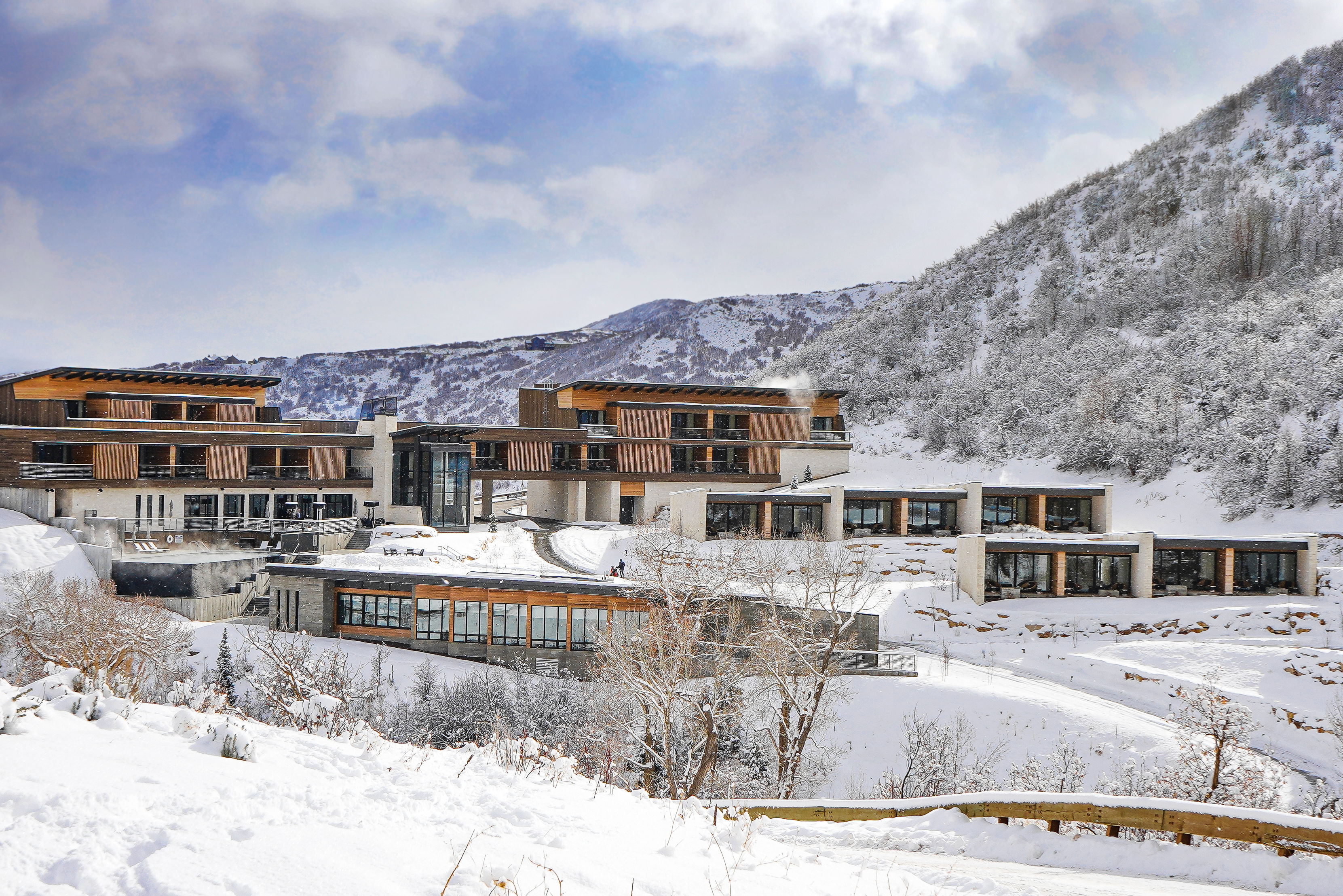How a Safety Net of Nonprofits Helped This Freeskier Back to the Slopes
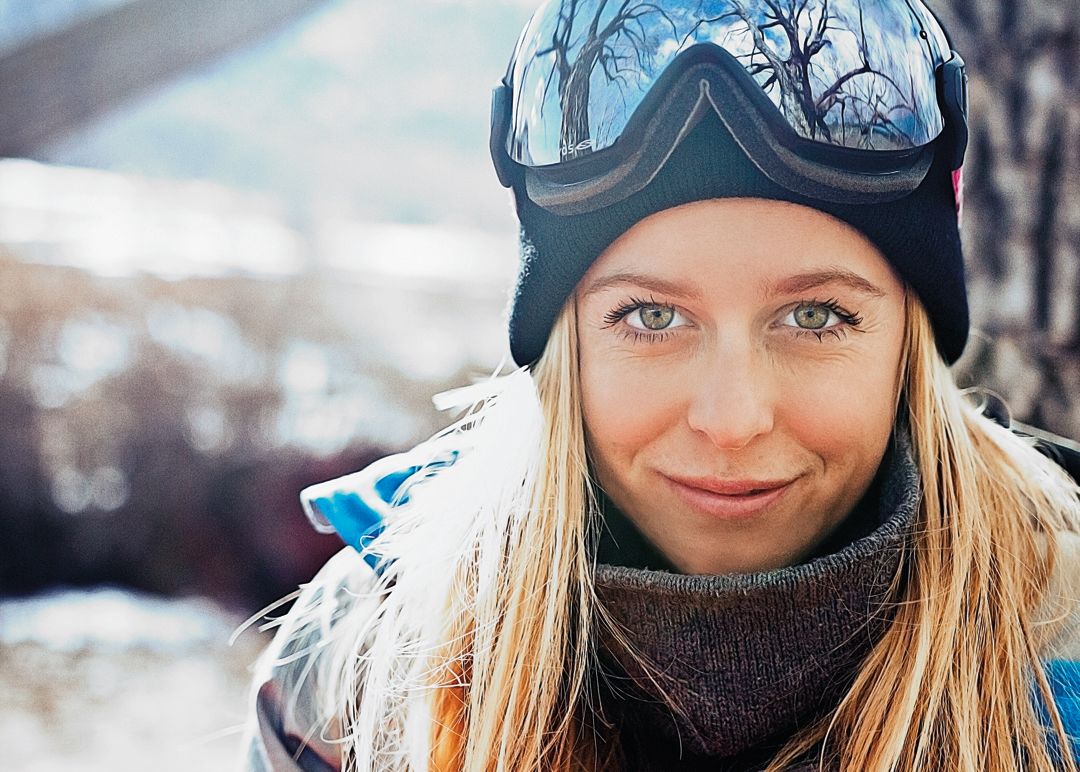
Free skier and Park City Resident Jamie Crane-Mauzy made and incredible recovery.
Image: Jamie Crane-Mauzy
Decorated freeskier and Park City resident Jamie Crane-Mauzy talks a mile a minute as she recounts her most recent foray into the extreme sports realm: a big mountain competition in New Zealand last summer. The petite and poised 24-year-old didn’t win, but that’s beside the point. Just 16 months prior to our meeting, no one knew if Crane-Mauzy would survive the ski accident at the 2015 Association of Freeskiing Professionals World Tour Finals at Whistler that damaged her right brain stem and left her convulsing on the slopes. Emerging from a 10-day coma, she could barely speak. Her right side was completely paralyzed. And, while she knew she was a skier, she didn’t know her last name. “When Jamie woke up from the coma, she didn’t know anything except her first name and our [her parents’ and sisters’] names,” recalls her mom, Grace “Fruit” Mauzy. “It was just like that movie 50 First Dates.” It took a mountain of relearning and support from family, community, and the nonprofit High Fives Foundation to get back to where she is today.
It was Mauzy who, thanks to the urging of local physical therapist Dr. Jessica Tidswell, reached out to the Truckee, California-based High Fives. While her daughter was in the hospital, Mauzy filled out the organization’s Empowerment Grant application, requesting support for a year’s worth of recovery needs for her daughter without a full grasp of what those needs would be. And the nonprofit responded quickly, funding more than $10,000 worth of Jamie’s treatments to date.
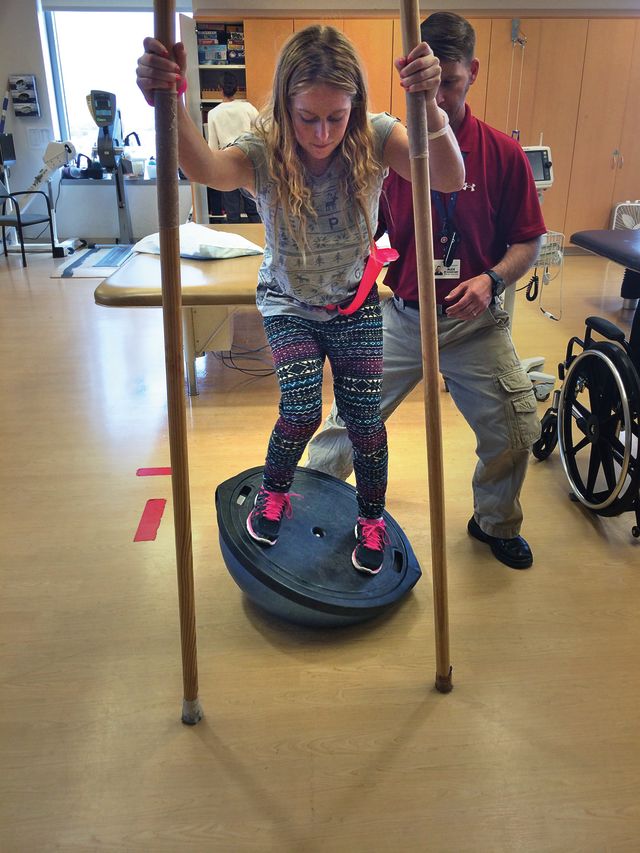
Crane-Mauzy works with a physical therapist at the Intermountain Medical Center Inpatient Rehab Clinic in Salt Lake City.
High Fives filled in the healing gaps as Crane-Mauzy relearned how to walk, talk, and ski, covering costs for massage, chiropractor visits, yoga, supplements, Lumosity brain training, Rosetta Stone subscriptions, out-of-network physical therapy, acupuncture, and more.
Image: Jamie Crane-Mauzy
High Fives founder Roy Tuscany describes his organization as the “empowering safety net of the mountain action sports community.” Aside from funding recovery for 126 athletes in 26 states since it was founded a decade ago, the nonprofit has several programs dedicated to athlete recovery and injury prevention, including athlete-to-athlete healing networks: the C.R. Johnson Healing Center; BASICS (Be Aware and Safe in Critical Situations) preventative training for all ages; and Military to the Mountains, a 10-week program for veterans that includes pre-snow training in adaptive skiing and an on-slope week at Squaw Valley. In Crane-Mauzy’s case, the foundation’s “empowering” role was to provide financial assistance for recovery and to support her pursuit of dreams after recovery, explains Tuscany.
“They [High Fives] help you get back to who you were before your injury,” says Crane-Mauzy. “Or back to the best version of yourself.” High Fives filled in the healing gaps as Crane-Mauzy relearned how to walk, talk, and ski, covering costs for massage, chiropractor visits, yoga, supplements, Lumosity brain training, Rosetta Stone subscriptions, out-of-network physical therapy, and acupuncture. As she returned to the slopes, the grant covered off-snow skiing on a carpet roller in California and back-to-snow programs in Breckenridge, Colorado, and here in Park City through the National Ability Center.
“They look at the finer tuning that will end up changing your life,” explains Crane-Mauzy, who continues to modify her recovery with help from High Fives through yoga sessions at The Shop, chiropractic treatments, and psychotherapy—something she was initially hesitant to explore but now urges others to consider. “Slopestyle skiing and I had a break-up. And I was the one who was dumped,” she says with a chuckle. “I didn’t feel like I deserved to see a therapist. I’d had so many doors opened for me. But you don’t have to be depressed at a clinical phase to get help,” she says, adding that High Fives not only funded the therapy sessions not fully covered by insurance, but also made her feel less guilty about getting that help.
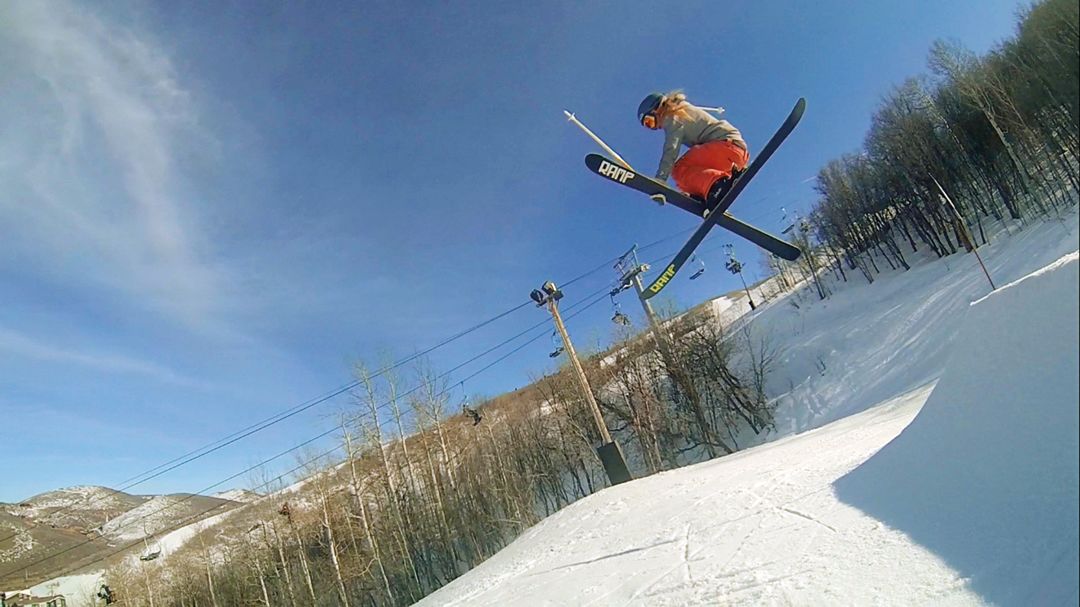
Crane-Mauzy skied for the first time since her injury in November 2015 and began pulling off freeskiing maneuvers like this one in February 2016.
Image: Jamie Crane-Mauzy
High Fives acknowledged each time Crane-Mauzy reached a recovery goal she’d set for herself—like driving independently or skiing or returning to competition—by sending her recognition in the form of a karate-like belt. “They’re athletes. They’re used to getting medals,” Mauzy says. “And the people at High Fives actually get that, which is really key.”
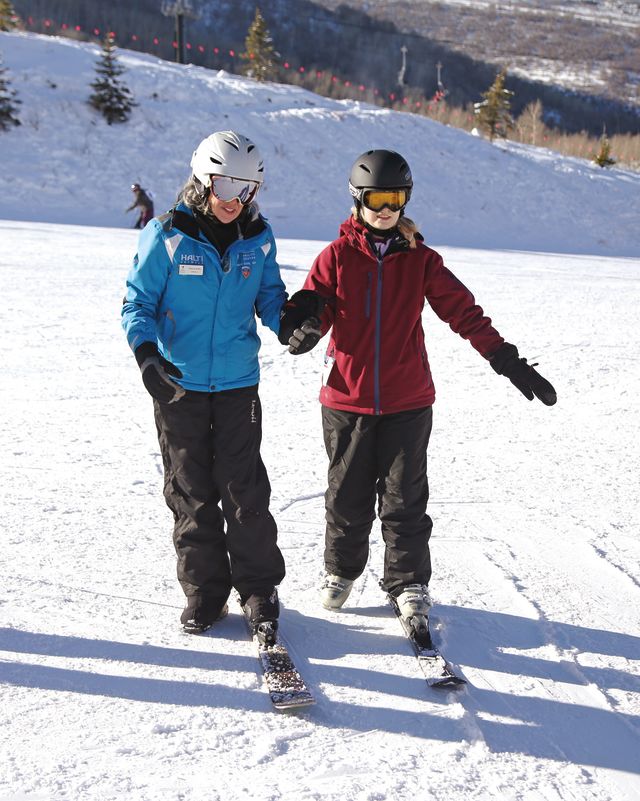
Close-to-Home Support
In addition to crediting the High Fives Foundation for helping her become whole again, Crane-Mauzy also tips her skis to Park City’s National Ability Center (435.649.3991, discovernac.org)—which offers high-quality, inclusive recreational programs for individuals and families—for getting her back on snow in a safe, comfortable way. “I couldn’t have done it by myself. One, they gave me all these drills and coaching; and two, they never said I couldn’t do it,” Crane-Mauzy says. “Going back with them completely changed my going back.”
Image: National Ability Center
Return from a traumatic brain injury can take years and Mauzy estimates that her daughter’s recovery is at about 98 percent. Crane-Mauzy is back in school, studying communications at Westminster College and she hit the road twice this autumn as a motivational speaker at conferences in Las Vegas and Palm Springs. “But it’s that extreme athlete’s exceptional reaction time that lies within that remaining 2 percent,” Mauzy says. This winter Crane-Mauzy is participating in a program (again, supported by High Fives) to help her increase both her physical movement and mental speed.
Crane-Mauzy’s return to competition—which she began at last summer’s North Face Frontier Freeride World Qualifier in New Zealand—has included a new framework in terms of goals and risk management. She no longer hits jumps in wind or flat light. And her adjusted dreams lean in the direction of empowering others and giving back, possibly combining her story and backcountry skiing in a ski movie and doing more motivational speaking. She and her family are also establishing their own nonprofit, First Family Flight, to support family members of injured athletes. Sure, she dreams of doing a TED Talk or appearing on Ellen, but Crane-Mauzy continues to focus on the now, taking baby steps, and not letting the big goals overwhelm her and undercut her success. “My injury was life changing, but it didn’t put a halt to my life,” she says, with more than a note of gratitude for everyone involved, from the Vancouver doctor, who treated her with a new brain-injury protocol; to High Fives; to the National Ability Center; to her family. “My biggest advice to anyone who is trying to overcome anything: Stay focused on the present, don’t worry about the future, and don’t think about the past.”
